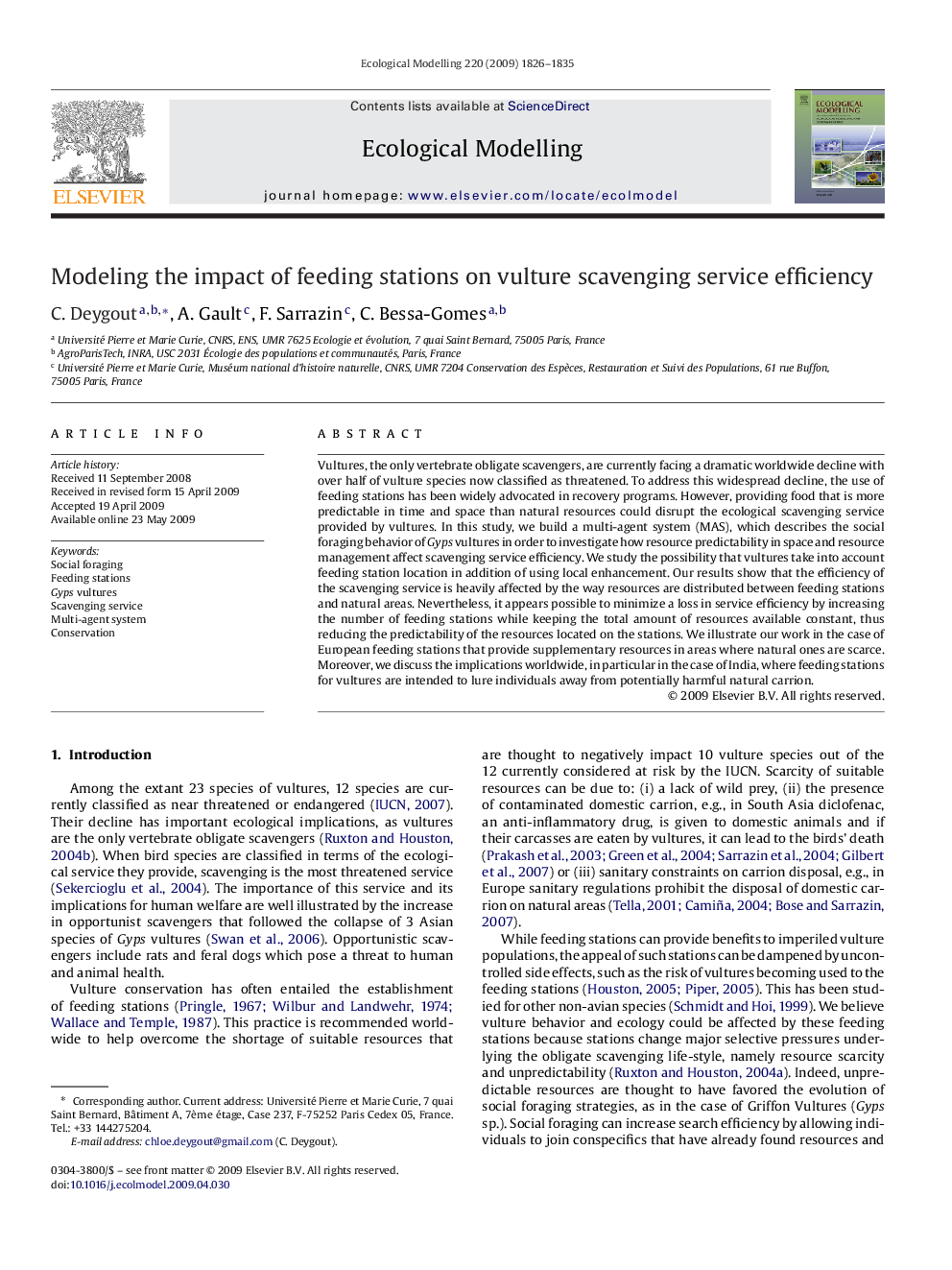| Article ID | Journal | Published Year | Pages | File Type |
|---|---|---|---|---|
| 4377958 | Ecological Modelling | 2009 | 10 Pages |
Vultures, the only vertebrate obligate scavengers, are currently facing a dramatic worldwide decline with over half of vulture species now classified as threatened. To address this widespread decline, the use of feeding stations has been widely advocated in recovery programs. However, providing food that is more predictable in time and space than natural resources could disrupt the ecological scavenging service provided by vultures. In this study, we build a multi-agent system (MAS), which describes the social foraging behavior of Gyps vultures in order to investigate how resource predictability in space and resource management affect scavenging service efficiency. We study the possibility that vultures take into account feeding station location in addition of using local enhancement. Our results show that the efficiency of the scavenging service is heavily affected by the way resources are distributed between feeding stations and natural areas. Nevertheless, it appears possible to minimize a loss in service efficiency by increasing the number of feeding stations while keeping the total amount of resources available constant, thus reducing the predictability of the resources located on the stations. We illustrate our work in the case of European feeding stations that provide supplementary resources in areas where natural ones are scarce. Moreover, we discuss the implications worldwide, in particular in the case of India, where feeding stations for vultures are intended to lure individuals away from potentially harmful natural carrion.
